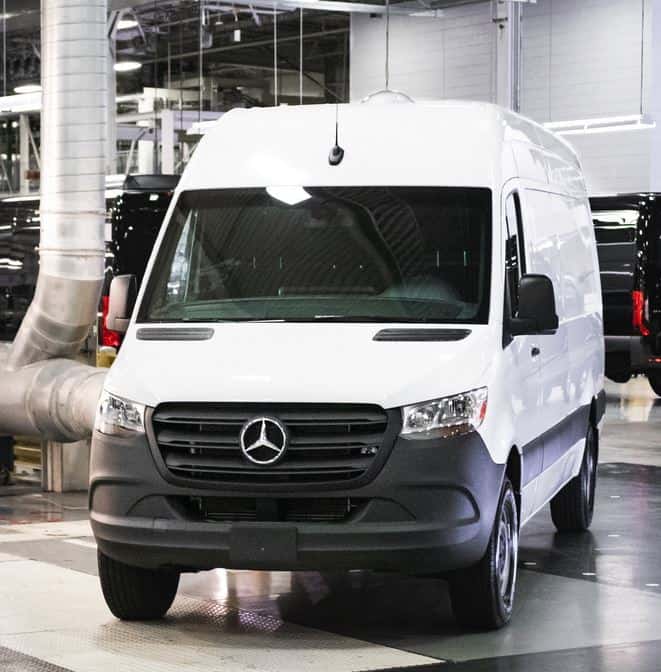 Mercedes Benz launched the new Sprinter. The new part-by-part production facility with body shop, paint shop and final assembly opens in North Charleston in time for the U.S. market launch. The first Sprinter out of new production is delivered to Amazon.The new partnership with Amazon includes the delivery of 20,000 vans for small businesses across the U.S., making the online retailer the world’s largest Sprinter customer.
Mercedes Benz launched the new Sprinter. The new part-by-part production facility with body shop, paint shop and final assembly opens in North Charleston in time for the U.S. market launch. The first Sprinter out of new production is delivered to Amazon.The new partnership with Amazon includes the delivery of 20,000 vans for small businesses across the U.S., making the online retailer the world’s largest Sprinter customer.
The company invested approximately 500 million U.S. Dollars in new plant. The plant has state-of-the-art intelligent production – with driverless transport systems, paperless documentation and exceptional digital training tools. It employees more than 900 employees at start of production and up to 1,300 team members planned by the end of 2020.
Among the outstanding innovations in the North American market are the new multimedia systems MBUX (Mercedes-Benz User Experience), the control and display concept in the cockpit, as well as ergonomically shaped seats and modern assistance systems – some of them were taken over by the car sector and, for the first time, found their way into a Mercedes-Benz van.
New standards are being set in the field of digitization and connectivity, which is why the new Sprinter can be described as the first van in a new category with a holistic overall system solution. The previously available version of the proven Mercedes-Benz Sprinter was in high demand among customers in the USA, the second largest market in the world for Sprinter vans.
Among the biggest transformations is the paperless, digital production documentation, based on RFID technology. It means the position of a specific component can be pinpointed precisely at any given time with contactless, automatic identification and localization. This information allows employees in logistics and production to feasibly adjust to process changes. Moreover, quality assurance personnel can ascertain that the correct part has been installed in the correct vehicle. Relative to conventional processes, RFID technology has made it possible to eliminate several steps of documentation, with one example being the manual scanning of barcodes. This not only saves time and money but also reduces the number of potential sources of error.
Like other locations within the Mercedes-Benz Vans production network, the plant in North Charleston is equipped with driverless transport systems – which can travel more than 40 miles in one shift. They are controlled through networking with the plant’s IT system and via RFID (radio-frequency identification) technology. The associated transponders, incorporated into the factory floors, receive the necessary driving commands. The vehicles can also use Bluetooth to communicate with one another and coordinate automatically, thus guaranteeing smooth traffic flow at all times.